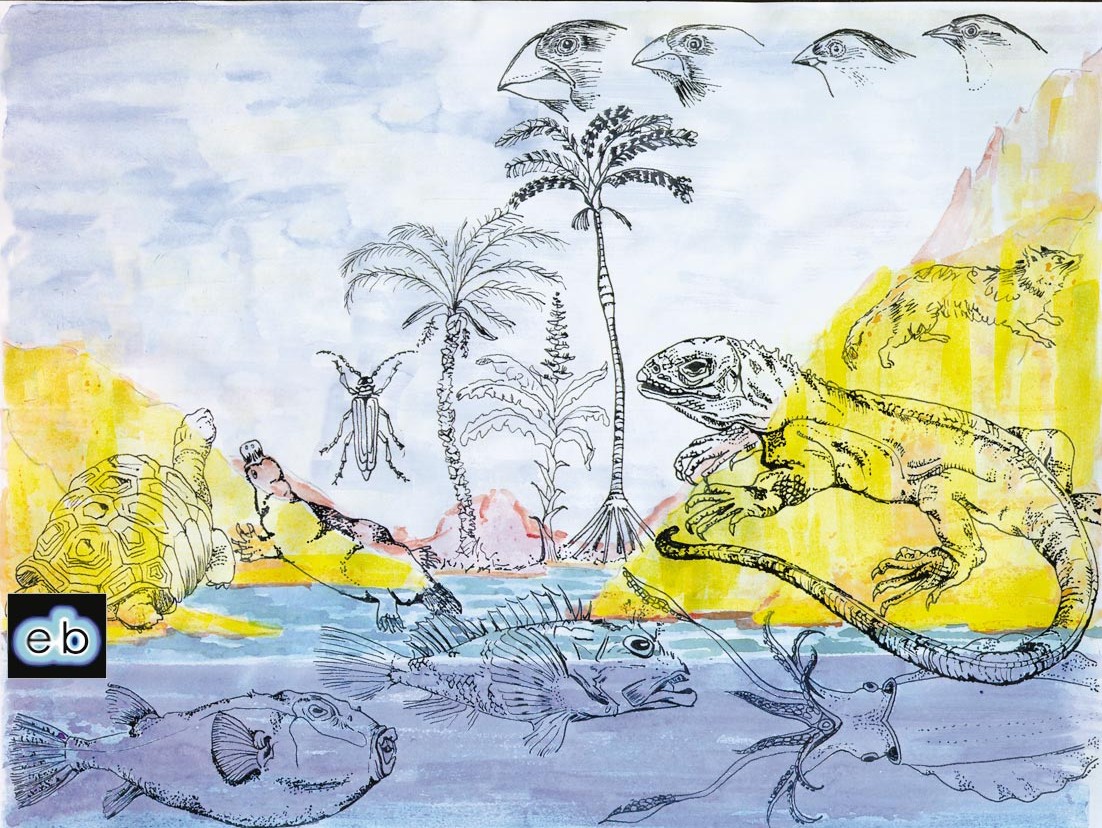 ON
ON
THE ORIGIN OF SPECIES
CHARLES DARWIN
 ON
ON
THE ORIGIN OF SPECIES
BY MEANS OF NATURAL SELECTION
OR THE PRESERVATION OF FAVOURED RACES IN THE STRUGGLE FOR LIFE
CHARLES DARWIN M.A.
FELLOW OF THE ROYAL, GEOLOGICAL, LINNÆAN ETC., SOCIETIES, AUTHOR OF ‘JOURNAL OF RESEARCHES DURING H.M.S. BEAGLE’S VOYAGE ROUND THE WORLD.’
First Edition published by John Murray, London, 1859 This edition (based on the text of the First Edition) 1997
ElecBook
London
Charles Darwin (1809-1882)
Born at Shrewsbury, Darwin came from an affluent family, descended from successful country doctors on one side and the Wedgwood family (of pottery fame) on the other. He was intended to follow the family tradition of medicine, but couldn’t stand the bloody nature of surgery, and seemed likely to become a wastrel. His father sent him to Cambridge to study theology with a view to turning him into a country parson, but Darwin became fascinated by geology and natural history, impressing his tutors so much that they recommended him for a vacancy that arose as an unpaid naturalist and companion for the Captain on the voyage of the Beagle. The round-the-world voyage lasted from 1831 to 1836, and gave Darwin a rare insight into the geology of different parts of the globe and the variety of life on Earth.
Back home, he found he had a reputation as a geologist, based on the reports and materials he had sent back during the voyage, but was not known as a naturalist at all. Although he almost immediately came up with the idea of natural selection, he set about establishing a reputation in biology before thinking about publishing it. Indeed, he only published at all when Alfred Russel Wallace came up with the same idea independently.
Darwin was a semi-invalid for most of his life, perhaps a result of a tropical infection picked up on the voyage, and lived in seclusion in Kent surrounded by a large family and attended by a loving wife. Independently wealthy (and made more so by the success of his books) he never had to work for a living —but, paradoxically, worked far harder than most people (when he was well enough) at what strictly has to be called his hobby.
John Gribbin
